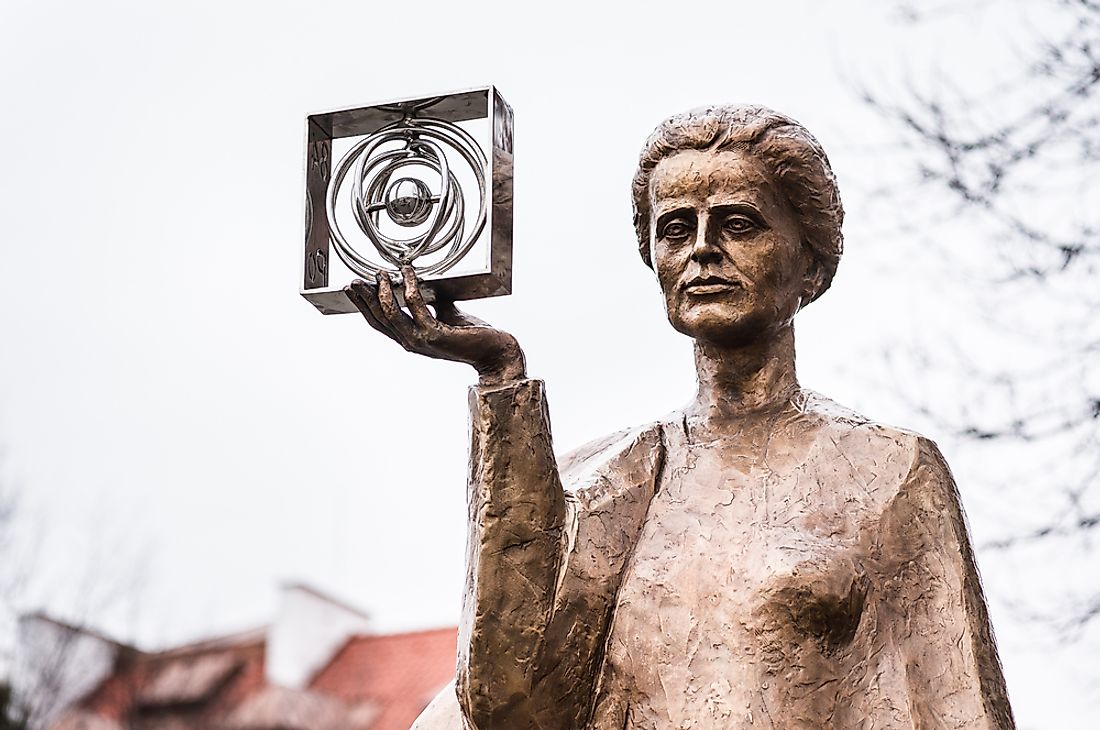Who Has Won More Than One Nobel Prize?

The Nobel Prize is one of the world's most prestigious awards and is given annually to individuals and organizations to acknowledge significant academic, scientific, and cultural contributions or advances. The prize was created and endowed by Swedish scientist Alfred Nobel in 1895 and was initially awarded to five categories: Chemistry, Literature, Peace, Physics, and Science or Medicine. The Nobel Memorial Prize in Economic Sciences, introduced by Sweden's central bank in 1968, while not an official Nobel Prize, is often referred to as the "Nobel Prize in Economics." Over the course of its illustrious history, several people and organizations have been awarded the Nobel Prize more than once.
People Who Have Won The Nobel Prize More Than Once
Marie Curie
Marie Curie was one of the most remarkable Polish scientists of the 20th century, with numerous achievements including the first person to be awarded the Noble Prize twice, the only person to be awarded the Nobel Prize in two different scientific fields as well as the first woman to win the Nobel Prize. Curie won her first Nobel Prize in Physics in 1903, which she shared with her husband, Pierre Curie, and French scientist Henri Becquerel. Curie was awarded a second Nobel Prize in 1911 in the field of chemistry in recognition of her discovery of polonium and radium. In addition to her Nobel prizes, Marie Curie was also the first female professor at the University of Paris.
John Bardeen
John Bardeen was an American engineer, and he remains the only individual to be awarded the Nobel Prize in Physics more than once. Bardeen's first Nobel Prize was awarded for the invention the transistor, together with American physicists, William Shockley, and Walter Brattain. In 1972, Bardeen won the award again in recognition of his work on the theory of conventional superconductivity. Bardeen's second award was shared with American physicists John Robert Schrieffer and Leon N. Cooper.
Linus Pauling
American Linus Pauling is widely considered as one of the most important scientists of all time, as well as a significant peace activist. Pauling was awarded the Nobel Prize in Chemistry in 1954 in recognition of his contribution to the understanding of the nature of chemical bonds, which influenced the work of chemists all over the world. In addition to his scientific work, Pauling advocated against nuclear weapons and warfare, and was awarded the Nobel Peace Prize in 1962.
Frederick Sanger
Frederick Sanger was a British biochemist who was awarded the Nobel Prize in Chemistry on two occasions. Sanger's his first Nobel Prize was awarded in recognition of his work in understanding the nature of proteins. He received the award again in 1980, for his work on nucleic acid, sharing the prize with American biochemists Walter Gilbert and Paul Berg.
International Organizations
Two international organizations have won the Nobel Prize more than once: The International Committee of the Red Cross (ICRC) and the United Nations High Commissioner for Refugees (UNHCR). The Red Cross has been the recipient of three Nobel Peace Prizes, first in 1917, and again in 1944 and 1963. The UNHCR was awarded two Nobel Peace Prizes, first in 1954 and again in 1981.
Controversy Surrounding the Nobel Prize
Despite the prestigious nature of the Nobel Prize, the award has also been the subject of controversy. The award has been criticized for several reasons, including the promotion of political agendas, a bias towards individuals and organizations from the Western world, the underrepresentation of female prize winners, and overlooked achievements.











